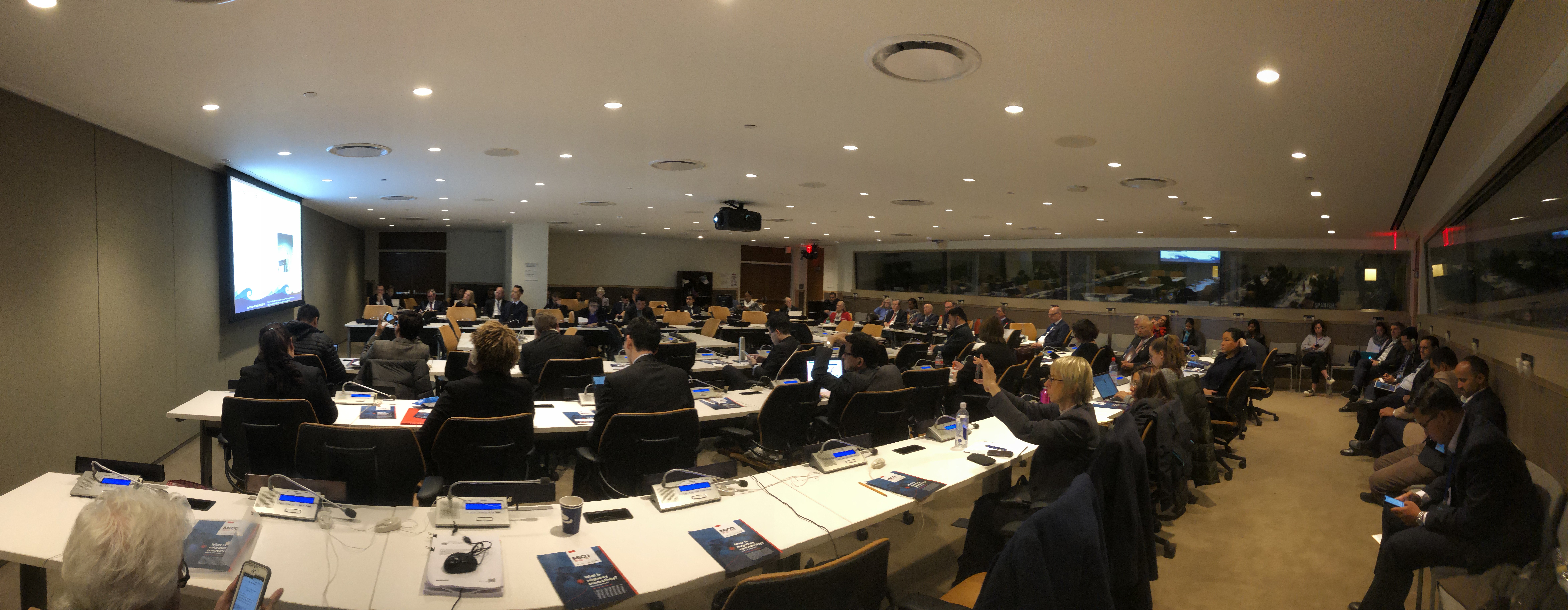The Migratory Connectivity in the Ocean (MiCO) system – developed by Duke University’s Marine Geospatial Ecology Lab with support from GOBI’s IKI grant and input from over 30 partners – was finally launched during a Side Event at the 2nd BBNJ Intergovernmental Conference held at UN Headquarters in New York in April 2019. The conference is part of a series of dedicated UN meetings for States to negotiate a new international legally binding instrument for the conservation and sustainable use of marine biological diversity of areas beyond national jurisdiction. The Side Event and MiCO launch, attended by over 60 delegates, was hosted by the Permanent Mission to the United Nations of Ecuador and the Comisión Permanente del Pacífico Sur (CPPS), and organised by UN Environment World Conservation Monitoring Centre and Duke University.

Based on the movements of highly migratory marine animals collated by MiCO, patterns in species distribution and movement can be visualised, increasing our knowledge on area use and biological connectivity between national waters and areas beyond national jurisdiction (ABNJ). MiCO shows where high use areas (nodes) occur, as well as the routes that the animals take to travel among them (corridors). MiCO users can overlay multiple species or can query the system based on a specific country’s EEZ, a specific species, and even attributes about a species like age class, sex, or population. At the time of launch, the MiCO system hosts 21 nodes and 17 corridors for seven species, based on analyses of tracks from telemetry data of 357 animals from 61 datasets provided by 33 contributing partners.
By collating and enabling the visualisation of such data, MiCO is able to inform BBNJ discussions around the development of area-based management tools, environmental impact assessments (and strategic environmental assessments), and capacity building and technology transfer. Anyone interested in contributing data or learning more about the MiCO system is invited to visit mico.eco or email info@mico.eco.


